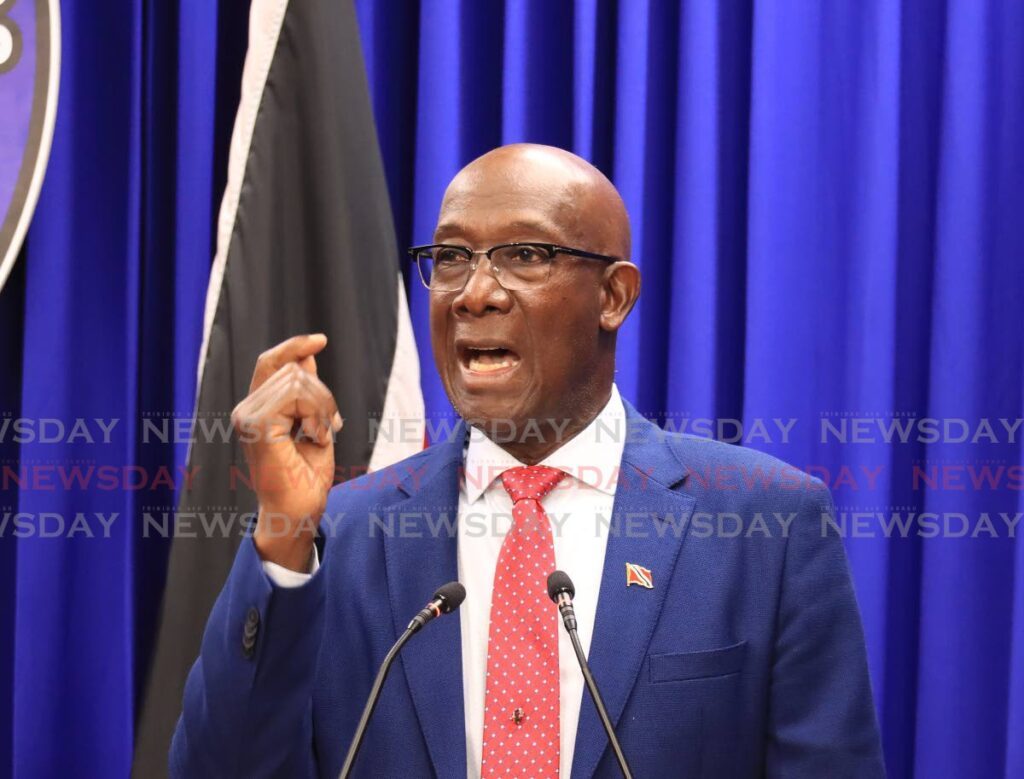Do not politicise appointment of CoP

THE EDITOR: In the past, the TT Constitution provided for the appointment of a commissioner of police (CoP) and deputy commissioners of police (DCPs) by the Police Service Commission (PSC), subject to approval by the Prime Minister.
Obviously, the PSC was established to provide an institution that would monitor the performance of these very senior law enforcement officials on an ongoing basis. In such a scenario it is expected that the PSC would be staffed with individuals with the relevant expertise and/or have access to such expertise on contract or otherwise.
Accordingly, the PSC’s decisions on appointments ought normally, in my view, to be subject to challenge only via a lawsuit. There ought to be special provisions in the law to ensure that such lawsuits are handled expeditiously.
The role of elected officials in such a recruitment exercise should be severely circumscribed. The Prime Minister ought not to have any veto power. A worthy candidate can find himself being bypassed as a result of the pettiness or victimisation of a prime minister. That is not to say that a PM might not be in possession of credible information on such senior officials of the TTPS or a prospective candidate that would render a proposed appointment or promotion to be very unwise. However, that information ought to be made available to the PSC for its consideration.
To allay fears of the PSC promoting or appointing someone who the PM and/or the Opposition Leader has credible information that the individual concerned is a miscreant, there ought to be a constitutional provision in place whereby the President of TT submits the intended decision of the PSC to both the PM and Opposition Leader for consideration.
If there is no objection, the appointment is made. If there is an objection, it must be substantiated with relevant data/evidence. That information would then be sent back to the PSC, by the President, for its further deliberation and final decision. However, the buck stops with the PSC and not with any politician.
On the issue of acting appointments, we must adopt a practical and sensible approach. Very short-term acting appointments of a few days or a few weeks ought to be made exclusively by the PSC, and expeditiously. For instance, if the CoP is suddenly required to attend to an emergency private matter outside of the country, or he is incapacitated due to illness or he suddenly dies in office. Obviously, the next officer in line should be granted an acting appointment. Why should politicians become involved in such appointments?
It is also important that such appointments be made expeditiously as there may be, for instance, in an unrelated matter, a litigant with a weak case before the court who may use the loophole of a gap period in such an appointment to bolster his case. Moreover, if such a matter has to be deliberated on by Parliament, in the interim, particularly if it involves the CoP, there would be many critically urgent matters that cannot move forward because they require the approval (signature) of the CoP.
Nonetheless, we have had a chequered history of acting arrangements lasting several years. Those have resulted from the failure to complete, on a timely basis, the procedure for the appointment of a substantive CoP or DCP following the departure of the former substantive holder of those positions.
That issue can be resolved by the PSC proactively commencing the exercise well in advance of the departure of the incumbent, whose retirement date is known (unless of course such an individual takes early retirement or dies in office), so that it is completed on a timely basis.
In any event, there should be a stipulation that any acting arrangement that has been extended or is made perhaps for a period of six months or more ought to be subjected to the same oversight procedures as a permanent appointment. However, while the matter is under consideration the officer next in line should be appointed to act or continue to act until otherwise determined.
Somewhat unrelated to the matter outlined above is the issue of how do we deal with a CoP who is allegedly corrupt? Confidential information and other evidence might be provided to the PSC by some of his subordinates and/or others. However, who should conduct such an investigation to determine whether charges should be laid against the CoP? The perception might be that a subordinate might feel intimidated and fear victimisation if he conducts a robust investigation.
Another issue that has attracted my attention is the recent claim by the PM that only two female candidates and one male candidate passed the lie-detector test at the last recruitment exercise for CoP. That should give us all great cause for concern, if true.
LOUIS W WILLIAMS
St Augustine


Comments
"Do not politicise appointment of CoP"